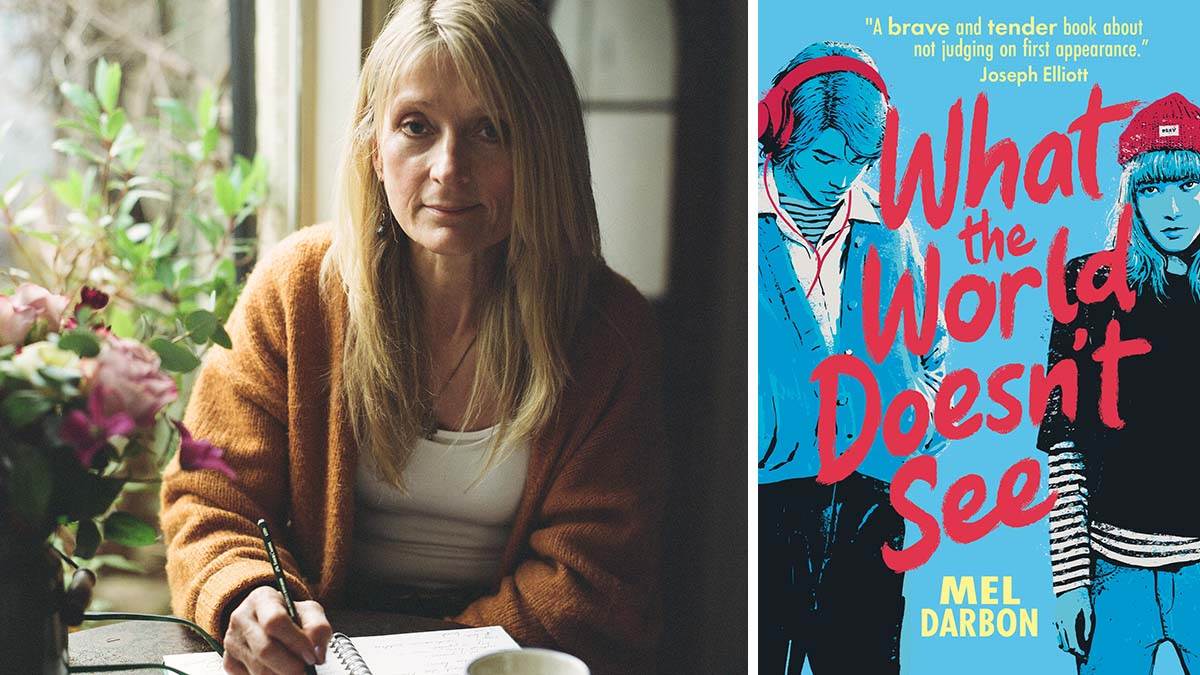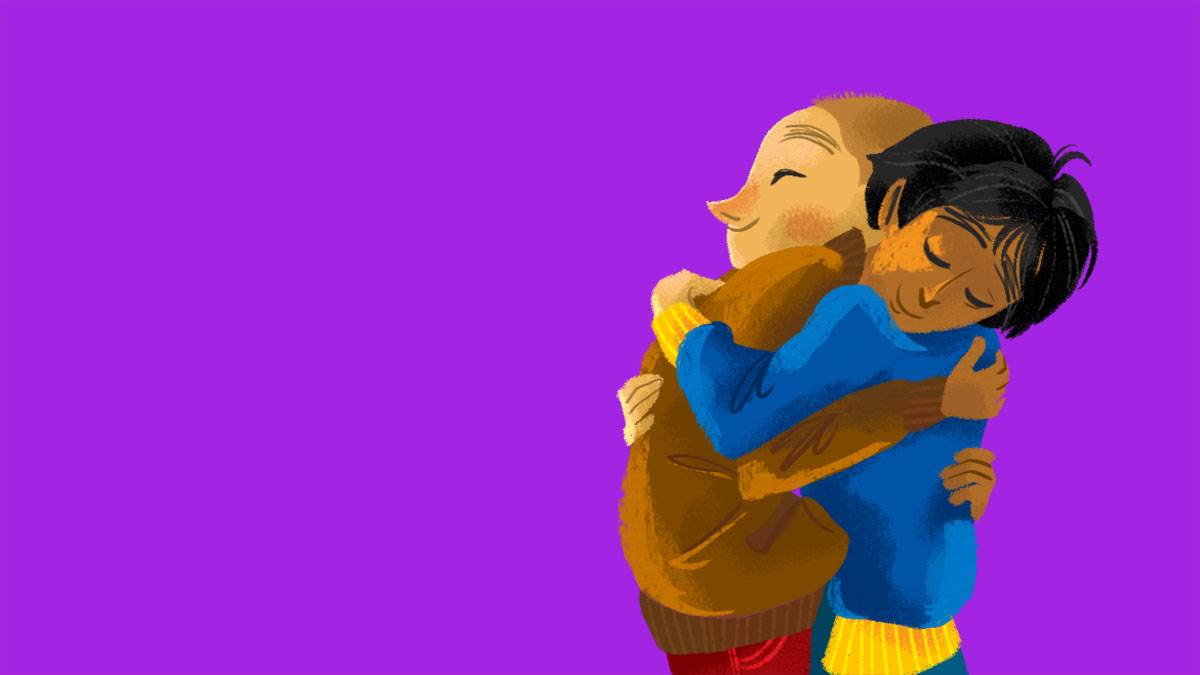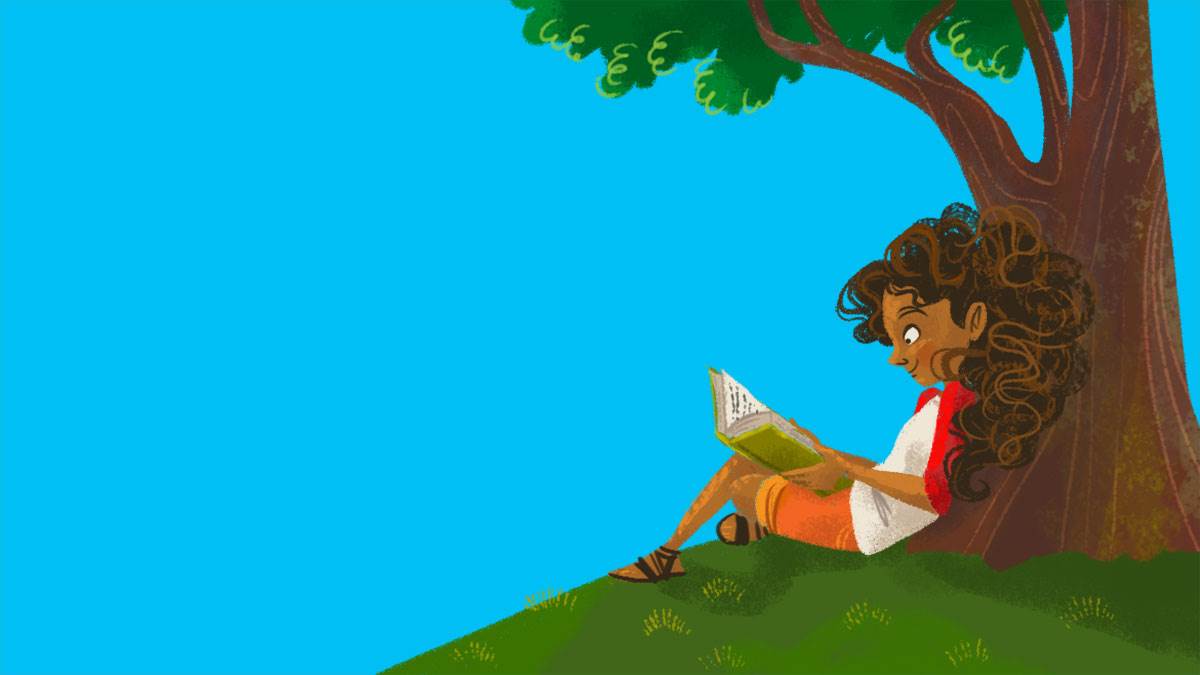Why all children should read about characters with learning disabilities
Published on: 28 March 2023
What the World Doesn't See author Mel Darbon shares what a difference it can make when young people read about different experiences.

Photo: Harry Crowder
Characters with any sort of learning disability rarely feature in fiction books and are one of the most under-represented groups in adults' and children's publishing.
I didn't see anyone like my brother, who had severe learning disabilities, in stories when I was young. This made me sad, and I wanted to do something about it when I grew up. I decided to write my brother a story, so that he and others like him could see themselves in books.
Too often any representation of learning disabilities has tended to focus on negative assumptions, because generally people can't see beyond a label – or don't know how to. It became increasingly important to me to show the positives – the laughter and joy – that people with learning disabilities experience in their lives.
People sometimes assume that if you can't communicate verbally, you have nothing to say – and even that you don't experience the same feelings as anyone else. But everyone with a learning disability is a fully-rounded individual with emotional complexity, and different needs and experiences. This is why I believe it's important to have inclusive stories with characters that help us recognise our similarities and celebrate the differences.
Challenging the myths of disability
I have been with my brother on many occasions when he's been either verbally abused or completely ignored, as though he doesn't count as a normal human being. My family has even been told that he should never have been born. I always knew that one day I would tell a story about someone like him, because I wanted people to see that his life was not unworthy; it was rich and meaningful.
I realised that through stories I could dispel the myths of disability. My character Jake in What the World Doesn't See is based on my brother, so teen readers can see these things for themselves and hopefully learn from them.
People with learning disabilities aren't here to teach us anything, but I do believe my brother taught me compassion, kindness, patience and, above all else, the ability to empathise, which is something I hope to share.
How stories build empathy

Pic: Erika Meza
Stories have the power to build empathy and to endow children with the ability to understand different perspectives apart from their own.
Empathy is incredibly important as it transports us outside our own landscape and into another person's world. It gives people a chance to reflect on their own behaviour through making a connection with someone else's viewpoint and feelings.
Empathy helps children learn how to interact with other human beings, form relationships and navigate complex emotions. It helps make the world a better place; without it, intolerance becomes the norm.
Including characters with a learning disability in stories enables students to look at how disability is defined and how it affects the character's interactions with family and the wider community. They can experience what it's like being in someone else's shoes and walk with them on their journey. It can help them feel what it's like to have assumptions made about you and it can combat harmful stereotypes that are often perpetuated about people with learning disabilities.
A story that appears to be about someone completely different from us can provide powerful moments of recognition, and if students can relate to these experiences themselves, they're more likely to consider how they might conduct themselves in the future.
Stories are key to educating young people about someone they know little about, and helping them understand that no matter who we are, we all have dreams, hopes and fears.
Finding our own experiences in stories

Pic: Erika Meza
It is also so important for children to be able to identify with the characters in the books they read. It's upsetting to find children feel that books are not about them or for them, something I discovered when working with young people with Down Syndrome. They were desperate to see themselves in a book and felt excluded and unwanted.
Providing books that embrace disability rather than diminish it has a positive impact on all children.
It worries me that the world we live in is so much more connected now and yet, ironically, in some ways we are more disconnected from each other than ever. This has huge implications for the future, because without those important emotional connections we can become very inward-looking and isolated.
I don't think it's surprising that mental health issues are on the rise. In a world obsessed with self, lived out within the borders of a screen that can be switched off, there's no connection with the real person behind that screen.
People say things online that they might never otherwise say and people with disabilities are often particularly open to abuse on social media, which is why we must change everyone's understanding of disability.
A positive portrayal of a disability, in a character who is simply part of the story, can help change this negative perception. Disabilities can be tough, but they're not tragic. A disability is not the person, it is just a part of who they are.
What the World Doesn't See, for teen readers, is out now.
Why schools need inclusive books
Author Victoria Williamson explains why including books about lots of different experiences is crucial in a school.
7 super reads for empathy
Author Helen Rutter shares how important it is to empathise with characters in stories, and recommends seven super books to try.
Topics: Disability, Learning disability, Features







